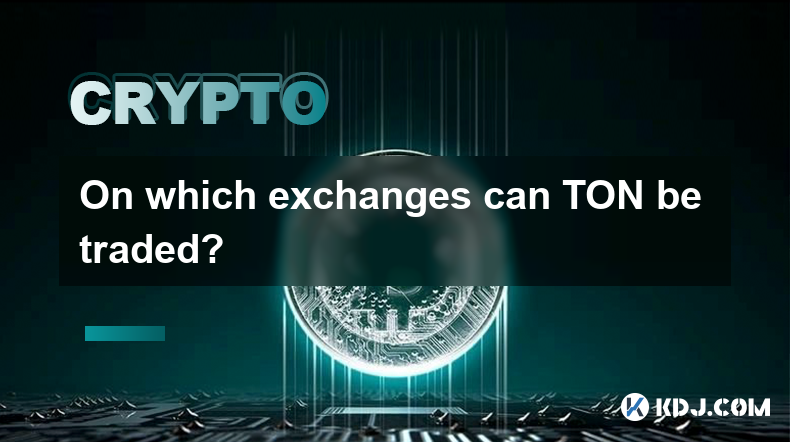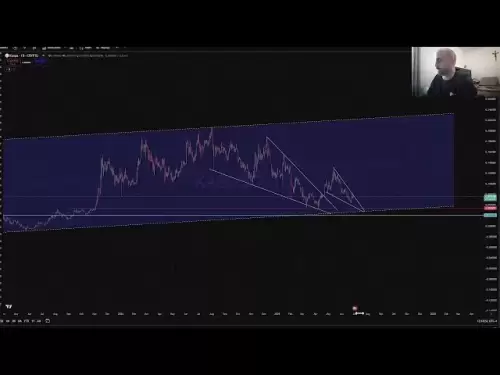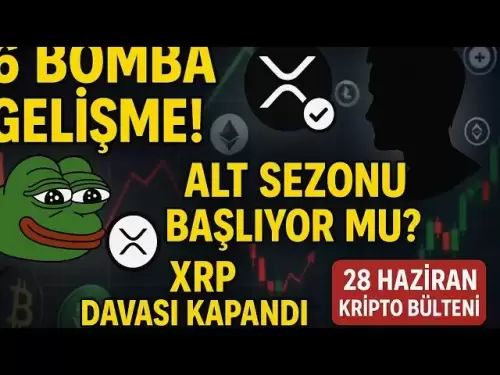-
 Bitcoin
Bitcoin $107,341.7259
0.15% -
 Ethereum
Ethereum $2,438.6204
0.70% -
 Tether USDt
Tether USDt $1.0003
-0.02% -
 XRP
XRP $2.1866
1.94% -
 BNB
BNB $649.0952
0.36% -
 Solana
Solana $150.9602
5.63% -
 USDC
USDC $0.9999
0.00% -
 TRON
TRON $0.2742
0.40% -
 Dogecoin
Dogecoin $0.1645
1.93% -
 Cardano
Cardano $0.5669
1.18% -
 Hyperliquid
Hyperliquid $37.8286
4.19% -
 Bitcoin Cash
Bitcoin Cash $491.4669
-2.74% -
 Sui
Sui $2.8150
3.06% -
 Chainlink
Chainlink $13.4184
2.91% -
 UNUS SED LEO
UNUS SED LEO $9.0809
0.27% -
 Avalanche
Avalanche $18.0295
2.60% -
 Stellar
Stellar $0.2396
1.19% -
 Toncoin
Toncoin $2.8587
0.13% -
 Shiba Inu
Shiba Inu $0.0...01160
2.59% -
 Litecoin
Litecoin $86.4192
1.45% -
 Hedera
Hedera $0.1486
1.19% -
 Monero
Monero $308.4324
0.87% -
 Polkadot
Polkadot $3.4202
1.43% -
 Bitget Token
Bitget Token $4.6436
-0.34% -
 Dai
Dai $0.9998
-0.02% -
 Ethena USDe
Ethena USDe $1.0002
0.00% -
 Uniswap
Uniswap $7.1527
3.29% -
 Pi
Pi $0.5357
-8.45% -
 Pepe
Pepe $0.0...09588
4.61% -
 Aave
Aave $259.9759
0.81%
On which exchanges can TON be traded?
TON, traded on CEXs like Binance and KuCoin, and some DEXs, has fluctuating exchange availability due to regulatory changes. Always verify listings on exchange websites before trading.
Mar 11, 2025 at 08:31 am

Key Points:
- TON, the native token of the TON blockchain, is available on a growing number of centralized exchanges (CEXs).
- Decentralized exchanges (DEXs) also offer TON trading pairs, though liquidity may vary.
- The availability of TON on specific exchanges can change rapidly due to regulatory shifts and listing decisions. Always check the exchange's website for the most up-to-date information.
- Choosing an exchange depends on factors like fees, security, available trading pairs, and user experience.
On Which Exchanges Can TON Be Traded?
The availability of The Open Network (TON) cryptocurrency for trading fluctuates. While a definitive, exhaustive list is impossible due to the dynamic nature of the cryptocurrency market, several prominent exchanges currently list TON trading pairs. These exchanges are generally categorized as either centralized exchanges (CEXs) or decentralized exchanges (DEXs).
Centralized exchanges, such as Binance, Huobi Global, and KuCoin, offer TON trading against various fiat currencies and other cryptocurrencies. These exchanges provide a more regulated and user-friendly trading experience, often with advanced charting tools and order types. However, it's crucial to remember that using a CEX means entrusting your funds to a third party. Therefore, security considerations are paramount when selecting a CEX. Always research the exchange's security measures and reputation before depositing funds.
Decentralized exchanges (DEXs), operating on the principles of blockchain technology and eliminating intermediaries, also provide TON trading opportunities. However, DEXs often have lower liquidity compared to CEXs, potentially leading to wider bid-ask spreads and less efficient price discovery. Popular DEXs that may offer TON trading pairs include those built on protocols like Uniswap or PancakeSwap (although the specific availability depends on the integration of TON into these platforms). Using a DEX involves a higher level of technical knowledge and self-custody of your assets.
It's important to note that the list of exchanges supporting TON trading is not static. New exchanges may list TON, while others may delist it based on various factors including regulatory changes, market demand, and the exchange's own internal policies. Therefore, always refer to the official websites of the exchanges you're considering to verify the current availability of TON trading pairs.
Factors to Consider When Choosing an Exchange for TON Trading:
Several factors influence the selection of a suitable exchange for trading TON:
- Fees: Trading fees, deposit fees, and withdrawal fees vary significantly across exchanges. Compare the fee structures of different exchanges to minimize costs.
- Security: The security protocols implemented by the exchange are critical. Look for exchanges with robust security measures, including two-factor authentication (2FA), cold storage for assets, and a history of strong security practices.
- Liquidity: High liquidity ensures you can buy or sell TON quickly without significantly impacting the price. Exchanges with higher trading volumes generally offer better liquidity.
- Trading Pairs: Consider the available trading pairs. Some exchanges offer TON paired only with Bitcoin or Ethereum, while others may provide pairings with fiat currencies.
- User Experience: A user-friendly interface and intuitive platform contribute to a better trading experience.
Finding and Verifying TON Listings:
To find out which exchanges currently list TON, you should perform the following steps:
- Check Major Cryptocurrency Exchange Websites: Visit the websites of major exchanges such as Binance, Coinbase (if listed), Kraken, Huobi Global, and KuCoin. Use their search function to check if TON is listed.
- Explore Decentralized Exchanges: Explore popular DEXs. Remember to verify that TON is supported on the specific DEX and its associated network.
- Consult Cryptocurrency News and Aggregators: Reputable cryptocurrency news websites and aggregators often report on new listings and delistings. These sources can provide up-to-date information on where TON is traded.
- Utilize Cryptocurrency Market Data Websites: Websites that provide real-time cryptocurrency market data, such as CoinMarketCap or CoinGecko, usually list the exchanges where a cryptocurrency is traded.
Frequently Asked Questions:
Q: Is it safe to trade TON on exchanges?
A: Trading on any exchange involves risk. While reputable exchanges employ security measures, the possibility of hacks, scams, or regulatory issues always exists. Thorough research and due diligence are crucial before choosing an exchange.
Q: What are the risks of trading TON?
A: The cryptocurrency market is inherently volatile. TON's price can fluctuate significantly, leading to potential losses. Regulatory uncertainty also poses a risk, as governments worldwide are still developing frameworks for regulating cryptocurrencies.
Q: How do I choose a secure exchange for TON?
A: Look for exchanges with a proven track record, strong security measures (like 2FA and cold storage), positive user reviews, and transparent security practices. Research the exchange's history and reputation before entrusting your funds.
Q: What are the fees associated with trading TON?
A: Fees vary depending on the exchange, trading volume, and the payment method used. Check the fee schedule of the specific exchange you're considering. Some exchanges may charge maker/taker fees, deposit fees, and withdrawal fees.
Q: Are there any alternatives to centralized exchanges for trading TON?
A: Yes, decentralized exchanges (DEXs) offer an alternative. However, DEXs often have lower liquidity and require a higher level of technical expertise.
Disclaimer:info@kdj.com
The information provided is not trading advice. kdj.com does not assume any responsibility for any investments made based on the information provided in this article. Cryptocurrencies are highly volatile and it is highly recommended that you invest with caution after thorough research!
If you believe that the content used on this website infringes your copyright, please contact us immediately (info@kdj.com) and we will delete it promptly.
- Kitten Craze Online: Hunting for the Purr-fect Coin Purse
- 2025-06-29 10:30:12
- Pudgy Penguins Soar to 3-Month High Amidst PENGU ETF Buzz!
- 2025-06-29 10:30:12
- AI Agents, Token Role, and Capitalization: Navigating the Web3 Frontier
- 2025-06-29 10:50:11
- Avalanche Price Forecast: Grayscale Boost Signals Potential Rally to $50?
- 2025-06-29 10:50:11
- Khazan's Getting a Facelift: Balance Changes and Freebies Galore!
- 2025-06-29 11:10:12
- Wall Street's Crypto Rival Battle: Saylor vs. Chanos and the Meme Coin Mania
- 2025-06-29 11:10:12
Related knowledge

How to customize USDT TRC20 mining fees? Flexible adjustment tutorial
Jun 13,2025 at 01:42am
Understanding USDT TRC20 Mining FeesMining fees on the TRON (TRC20) network are essential for processing transactions. Unlike Bitcoin or Ethereum, where miners directly validate transactions, TRON uses a delegated proof-of-stake (DPoS) mechanism. However, users still need to pay bandwidth and energy fees, which are collectively referred to as 'mining fe...

USDT TRC20 transaction is stuck? Solution summary
Jun 14,2025 at 11:15pm
Understanding USDT TRC20 TransactionsWhen users mention that a USDT TRC20 transaction is stuck, they typically refer to a situation where the transfer of Tether (USDT) on the TRON blockchain has not been confirmed for an extended period. This issue may arise due to various reasons such as network congestion, insufficient transaction fees, or wallet-rela...

How to cancel USDT TRC20 unconfirmed transactions? Operation guide
Jun 13,2025 at 11:01pm
Understanding USDT TRC20 Unconfirmed TransactionsWhen dealing with USDT TRC20 transactions, it’s crucial to understand what an unconfirmed transaction means. An unconfirmed transaction is one that has been broadcasted to the blockchain network but hasn’t yet been included in a block. This typically occurs due to low transaction fees or network congestio...

How to check USDT TRC20 balance? Introduction to multiple query methods
Jun 21,2025 at 02:42am
Understanding USDT TRC20 and Its ImportanceUSDT (Tether) is one of the most widely used stablecoins in the cryptocurrency market. It exists on multiple blockchain networks, including TRC20, which operates on the Tron (TRX) network. Checking your USDT TRC20 balance accurately is crucial for users who hold or transact with this asset. Whether you're sendi...

What to do if USDT TRC20 transfers are congested? Speed up trading skills
Jun 13,2025 at 09:56am
Understanding USDT TRC20 Transfer CongestionWhen transferring USDT TRC20, users may occasionally experience delays or congestion. This typically occurs due to network overload on the TRON blockchain, which hosts the TRC20 version of Tether. Unlike the ERC20 variant (which runs on Ethereum), TRC20 transactions are generally faster and cheaper, but during...

The relationship between USDT TRC20 and TRON chain: technical background analysis
Jun 12,2025 at 01:28pm
What is USDT TRC20?USDT TRC20 refers to the Tether (USDT) token issued on the TRON blockchain using the TRC-20 standard. Unlike the more commonly known ERC-20 version of USDT (which runs on Ethereum), the TRC-20 variant leverages the TRON network's infrastructure for faster and cheaper transactions. The emergence of this version came as part of Tether’s...

How to customize USDT TRC20 mining fees? Flexible adjustment tutorial
Jun 13,2025 at 01:42am
Understanding USDT TRC20 Mining FeesMining fees on the TRON (TRC20) network are essential for processing transactions. Unlike Bitcoin or Ethereum, where miners directly validate transactions, TRON uses a delegated proof-of-stake (DPoS) mechanism. However, users still need to pay bandwidth and energy fees, which are collectively referred to as 'mining fe...

USDT TRC20 transaction is stuck? Solution summary
Jun 14,2025 at 11:15pm
Understanding USDT TRC20 TransactionsWhen users mention that a USDT TRC20 transaction is stuck, they typically refer to a situation where the transfer of Tether (USDT) on the TRON blockchain has not been confirmed for an extended period. This issue may arise due to various reasons such as network congestion, insufficient transaction fees, or wallet-rela...

How to cancel USDT TRC20 unconfirmed transactions? Operation guide
Jun 13,2025 at 11:01pm
Understanding USDT TRC20 Unconfirmed TransactionsWhen dealing with USDT TRC20 transactions, it’s crucial to understand what an unconfirmed transaction means. An unconfirmed transaction is one that has been broadcasted to the blockchain network but hasn’t yet been included in a block. This typically occurs due to low transaction fees or network congestio...

How to check USDT TRC20 balance? Introduction to multiple query methods
Jun 21,2025 at 02:42am
Understanding USDT TRC20 and Its ImportanceUSDT (Tether) is one of the most widely used stablecoins in the cryptocurrency market. It exists on multiple blockchain networks, including TRC20, which operates on the Tron (TRX) network. Checking your USDT TRC20 balance accurately is crucial for users who hold or transact with this asset. Whether you're sendi...

What to do if USDT TRC20 transfers are congested? Speed up trading skills
Jun 13,2025 at 09:56am
Understanding USDT TRC20 Transfer CongestionWhen transferring USDT TRC20, users may occasionally experience delays or congestion. This typically occurs due to network overload on the TRON blockchain, which hosts the TRC20 version of Tether. Unlike the ERC20 variant (which runs on Ethereum), TRC20 transactions are generally faster and cheaper, but during...

The relationship between USDT TRC20 and TRON chain: technical background analysis
Jun 12,2025 at 01:28pm
What is USDT TRC20?USDT TRC20 refers to the Tether (USDT) token issued on the TRON blockchain using the TRC-20 standard. Unlike the more commonly known ERC-20 version of USDT (which runs on Ethereum), the TRC-20 variant leverages the TRON network's infrastructure for faster and cheaper transactions. The emergence of this version came as part of Tether’s...
See all articles

























































































